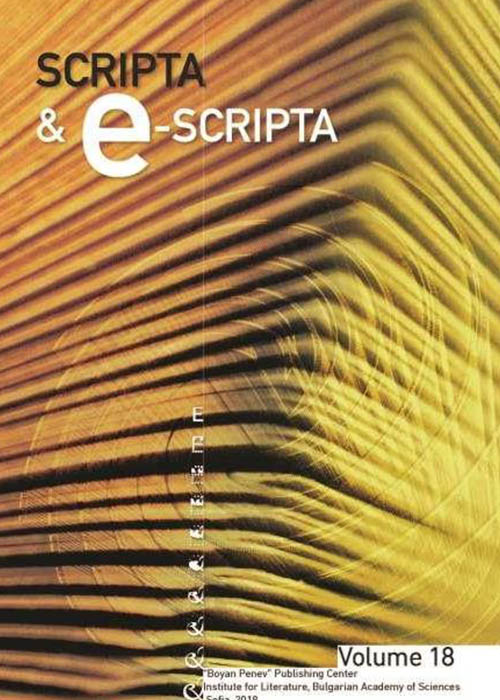From Annotation to Modeling: Computational Horizons for Medieval Slavic Studies.
От анотиране към моделиране: компютърни хоризонти за славистичната медиевистика

- Author(s): Quinn Dombrowski
- Subject(s): Digital humanities //
-
Published by: Institute for Literature BAS

- Print ISSN: 1312-238X
- Summary/Abstract:
This paper is a write-up of a keynote from El’Manuscript 2021, reflecting on the ways in which the field of computationally-supported medieval Slavic studies has and has not changed since the mid-2000’s. Looking towards developments in the broader fields of digital humanities and natural-language processing, it explores the ways that recent improvements in the tools at our disposal for mass digitization of manuscripts and text analysis at scale open up possibilities for working with manuscripts that have received very little attention. For these advancements to be feasible, however, scholars will need to prepare and share their digitized texts and annotations in ways that are not currently the norm, though a number of projects provide exemplary models of how these new conventions could be put into practice.
Journal: Scripta & e-Scripta vol. 21, 2021
-
Page Range: 11-21
No. of Pages: 11
Language: English - LINK CEEOL:
-
Quinn DombrowskiSlavic Linguistics from the University of ChicagoDescription
Quinn Dombrowski has a BA/MA in Slavic Linguistics from the University of Chicago, and an MLIS from the University of Illinois at Urbana-Champaign. Prior to coming to Stanford in 2018, she worked in central IT at UC Berkeley and the University of Chicago, supporting digital humanities infrastructure. As an Academic Technology Specialist at Stanford, she has supported numerous non-English DH projects, taught courses on non-English DH, co-led a Russian DH working group. Dombrowski is currently co-VP of the Association for Computers and the Humanities (a US-based professional organization for digital humanities, and a member of the Alliance of Digital Humanities Organizations) and advocates for better support for DH in languages other than English.
-
SUBJECT: Digital humanities //KEYWORDS: digitization // handwritten text recognition // natural language processing // treebanks //
-